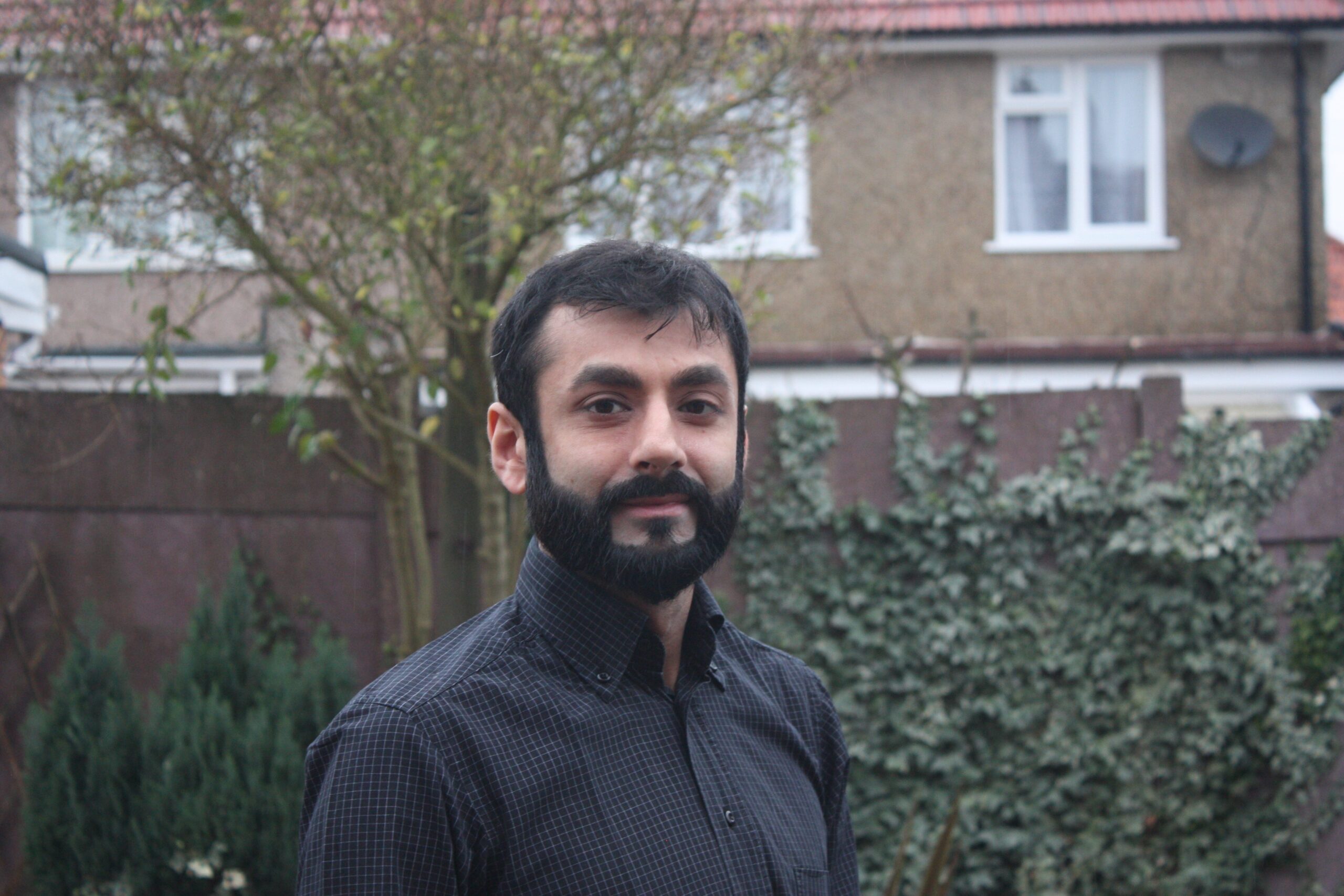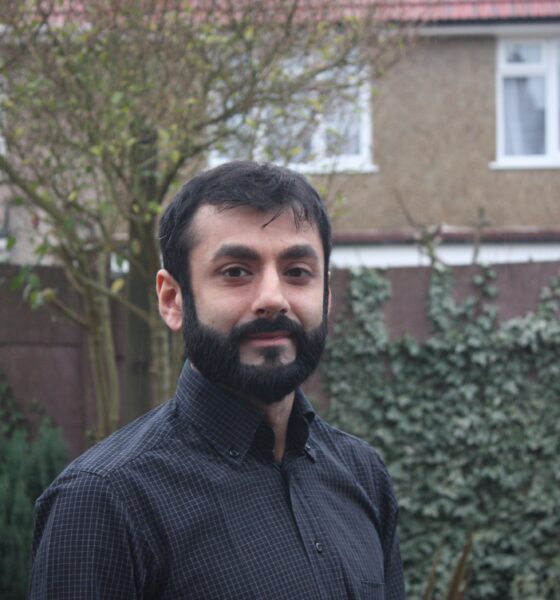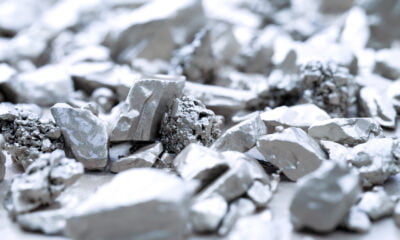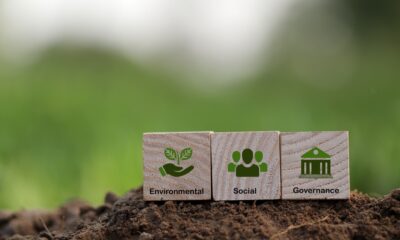

Economy
20 questions with… Raj Singh
Raj Singh answers 20 questions on life, sustainability and everything.
A freelance writer on sustainable investment and CSR, blogging at www.esginsider.com, Singh was previously programme director at the UK Sustainable Investment and Finance Association (UKSIF), and a senior ESG analyst at ECPI.
He also worked for a boutique PR and IR consultancy, on behalf of cleantech companies and investors, and had a stint as a journalist at a local newspaper in West London.
We want the world to be as blue and green tomorrow as it was yesterday. What’s your mission?
To live in a world where our economic models strive to minimise environmental degradation and human suffering, whilst maximising the long-term sustainability of natural resources. That, and to commission the next series of Blackadder.
When you were a child, what did you want to be when you grew up?
I wanted to work for the WWF. Not the charity, mind, but the World Wrestling Federation. I wanted to be a wrestler. When it became clear that wasn’t going to happen, I became obsessed with genetics and environmental conservation.
How would your friends describe you?
I’m not sure – you’d have to ask them. I’d like to think it’s: “positive, affable, generous and conscientious”, but I doubt that’s the case. They’re committed liars.
What was your ‘road to Damascus moment’ in terms of sustainability?
I’ve been concerned with environmental issues since I was a child, especially the lives of animals and plants. I would build houses and hutches for stray animals in case they wandered into our tiny West London garden. But I think it was opening a physics textbook as a teenager and seeing a picture and description of a prototype hydrogen fuel cell-powered car. This was in the late-90s. I went stark raving mad for a while and was preaching the gospel of carbon-free transport for weeks.
Who or what inspires you?
Everyone, really. Sounds corny, but we’re all intrinsically linked to one another’s wellbeing. My neighbours’ worries and issues are my own; I feel it’s important to keep in touch with local issues and people in your area who stand up against a slight or injustice. The natural world and cosmos inspire a fair bit of awe. It’s always refreshing to look up into the night sky and contemplate one’s accelerating insignificance.
What really grinds your gears?
The stalwarts in industry (financial services and beyond) who don’t see the added value of integrating sustainability issues in their business models. Oh, and those two blokes from the 118 118 adverts.
Describe your perfect day.
This may sound pedestrian to some, but it would involve hiking, lots of food and wine, and a party overlooking a lake with all of my friends. Basically a scene from one of the Northern Italian lakeside towns.
What do you see when you look out your window at home?
Like a lot of urban London it’s unfortunately rather grey; a long row of pre-war terraced houses, nearly all bought-to-let. There’s a nice tree opposite housing a family of sparrows and at least one grey squirrel, whom I’ve named Ivan. It’s refreshing to see everyone’s waste sorted for recycling before collection day; rewind the same scene by about 15 years and it was just piles of black bags going straight to landfill.
What do you like spending your money on?
Simple things, really: beer, food, books, music, film, puppets… I’m taking puppetry lessons and have started an admittedly creepy collection of marionettes. I thought it would make my place look debonair, but on reflection it looks a little unnerving.
What’s your favourite holiday destination?
Sicily. I lived in Italy for a couple of years and Sicily was a treat. The food, the wine, the sun, the food again… The great thing about living in Italy is the fantastically cheap and efficient rail service. I saw most of Italy in two years but have only seen a small fraction of the UK in the rest of my adult life. The cost of travelling around the UK is prohibitive for most.
What’s your favourite book?
I can’t possibly choose between the holy trinity: Kolyma Tales by Varlam Shalamov, The Book of Disquiet by Fernando Pessoa and Mysteries by Knut Hamsun (horrible wretch of a human being, though he was).
What’s your favourite film?
Wild Strawberries by Ingmar Bergman.
You’re made prime minister. What’s the first thing you do?
Convene a sort of UN-esque gathering of world leaders and somehow make them all agree on worldwide mandatory carbon caps. It’s utterly delusional, but it would take something that radical and transformative to force a lot of industry to change.
If you were stuck on a desert island, which famous person would you like to be stuck with and why?
Alive? David Lynch, probably. He seems like a nice, well-mannered sort of guy. Dead? It would have to be Genghis Khan, just to ask how he managed to amass the biggest empire the world has ever known. And all while riding on those tiny Mongolian horses.
What was the best piece of advice you have ever been given? And the worst?
“Pick your battles” is my favourite, from a good old friend. The worst was, “Go on Raj, smack him on the bonce”, in the schoolyard tussle that preceded it.
What would you like to be doing five years from now?
Fulfilling my mission; not just focusing on large institutions but also everyday people and their advisers. How can I help shape a long-term focused economy? This is a question I want everyone asking themselves, companies and their MPs.
What’s your biggest regret?
Not seeing more of the UK, as I mentioned earlier. That, and never being taught philosophy and Latin in school.
What one thing would you encourage readers to do to make their life more sustainable?
The first thing is to broaden one’s view on how you’re plugged in to the economy. If you have a pension, you’re an investor, not just a consumer! And as any investor, you have the ability to challenge companies on how they’re protecting your investments. You don’t just have a stake in their financial success but crucial stakes in a thriving, healthy natural environment and engaged citizenry. There are financial institutions and advisers out there who are experts at engaging with companies on your behalf – ask your current provider questions, or visit the UKSIF or Ethical Investment Association websites to find out more.
What’s the one idea that you think could change the world for the better?
Energy storage! The holy grail of renewables. Whoever cracks commercially-feasible, affordable and scalable energy storage will turn the power generation game on its head.
What’s your favourite quote?
The purported Spartan response when a Macedonian King declared, “If I win this war, you will be slaves forever!” They replied, simply, with one word: “If.”
Further reading:
From ethics to sustainability: shifting the investment debate for 2014
The sustainable investment tipping point is now
‘There are no moral or ethical considerations when investing’


 Environment12 months ago
Environment12 months agoAre Polymer Banknotes: an Eco-Friendly Trend or a Groundswell?

 Features11 months ago
Features11 months agoEco-Friendly Cryptocurrencies: Sustainable Investment Choices

 Features12 months ago
Features12 months agoEco-Friendly Crypto Traders Must Find the Right Exchange

 Energy11 months ago
Energy11 months agoThe Growing Role of Solar Panels in Ireland’s Energy Future



























